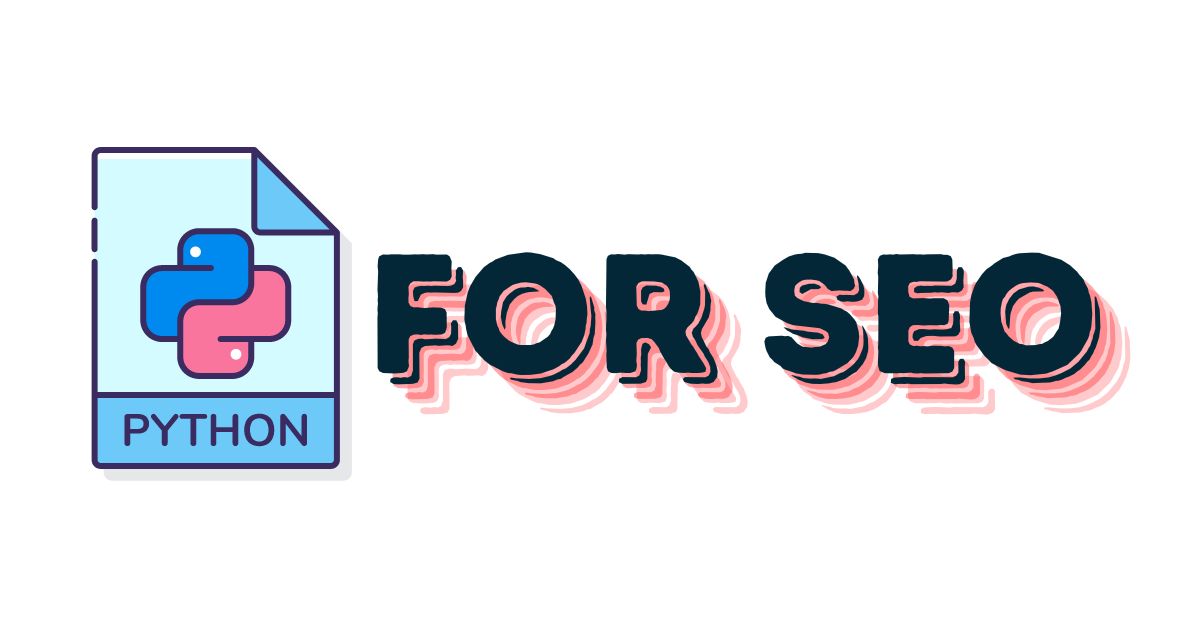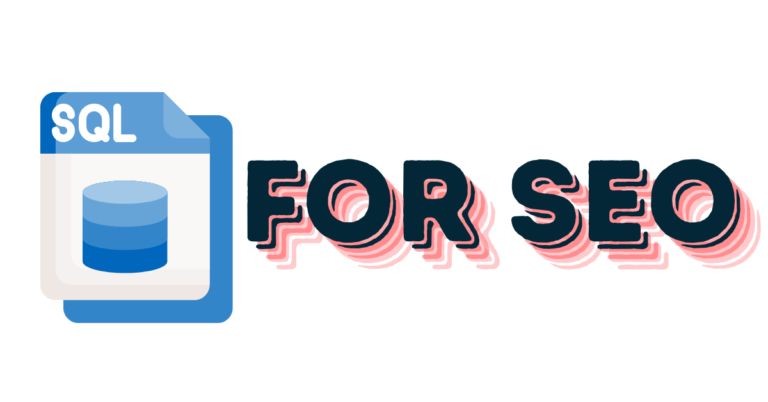Python for SEO: The Perfect Guide to Start Automating Your Work
Many SEO professionals are curious about the rising use of Python for SEO, especially when there are numerous free tools available.
While plugins like Yoast can generate a sitemap easily for WordPress users, Python’s appeal lies in its ability to handle complex, repetitive tasks across different platforms with a level of customization and automation that plugins can’t match.
If you’re considering advancing your SEO skills through programming, Python is a practical choice that can open up new possibilities for automating and refining your SEO workflows.
Why Use Python for SEO?
Here are the top reasons why you should consider using Python for SEO.
Automation of Repetitive Tasks
Python is a powerhouse when it comes to automating repetitive and time-consuming SEO tasks. This includes everything from web scraping for competitive analysis to automating content migrations and meta tag updates.
For instance, Python can automatically optimize images, generate alt text, or even handle bulk URL redirections during site migrations. This automation frees up valuable time, allowing SEO professionals to focus on more strategic tasks and decision-making processes.
Advanced Data Analysis and Decision Making
With its robust libraries for data analysis, Python enables SEO specialists to handle large datasets efficiently, perform complex calculations, and generate insightful reports and visualizations.
This is crucial in understanding SEO performance and making informed decisions based on data. Python’s capabilities extend to predictive analytics, where you can forecast SEO trends and outcomes, enhancing your strategy’s effectiveness over time.
Cost-Effective and Scalable Solutions
Learning Python can be a cost-effective solution for SEO professionals, particularly those managing large sites or multiple projects. Python can replace expensive SEO tools, providing a more customized and flexible approach to tasks like keyword tracking, performance analysis, and API integration.
Moreover, Python scripts can handle tasks at a scale that is often impractical with traditional SEO tools, managing millions of URLs or keywords efficiently and reliably.
What Can You Use Python for SEO?
To dive deeper into this topic, let’s discuss the SEO tasks that you can automate using Python.
1. Automating Data Extraction with APIs
Python is incredibly effective for automating data extraction from various APIs, such as Google Search Console. This allows for seamless data retrieval directly from these platforms, which is crucial for deep SEO analysis and performance monitoring.
Python scripts can automate the collection of extensive datasets, enabling you to maintain updated insights into SEO metrics without manual intervention.
2. Web Scraping for Content and Backlink Analysis
Python’s capabilities extend to web scraping, which can be pivotal for SEO strategies like backlink analysis and content research.
By automating the scraping of potential sites for outreach and competitor analysis, Python helps in efficiently gathering necessary SEO data from multiple sources, which can be crucial for improving your site’s SEO performance and content strategy.
3. SEO Reporting and Analysis
Python can transform the way you handle SEO reporting and analysis. With libraries like pandas in a Jupyter Notebook environment, Python excels in crunching large datasets, which is common in SEO for tasks such as rank tracking, correlation studies between different SEO metrics, and more.
The automation of these reports means once you set up a report, it can be reused and updated with new data, saving significant time and effort.
4. Technical SEO Tasks
Python can be utilized to perform a variety of technical SEO tasks automatically, such as URL normalization to ensure consistency across your site, or creating and updating sitemaps to aid search engines in better indexing your content.
Python scripts can also help in identifying and rectifying site structure issues, enhancing the overall SEO friendliness of a website.
5. Image Optimization for Enhanced Page Speed
One of the more practical uses of Python in SEO is for image optimization. Python can automate the process of resizing images, converting them to more efficient formats, and even optimizing them for faster page load times, which is a critical factor in SEO.
This not only improves user experience but also contributes to better search engine rankings due to faster load times.
6. Content Strategy and Generation
Python’s application in SEO is not just limited to data and technical tasks; it can also power content strategy.
By using natural language processing (NLP), Python can help in generating content ideas, optimizing existing content, and even creating new content that is optimized for SEO.
Additionally, Python can aid in clustering similar content and keywords, helping to refine content strategy further.
7. Custom SEO Tool Creation
Lastly, Python’s versatility allows SEO professionals to build custom tools tailored to specific needs, such as backlink tracking, SERP monitoring, and automated alerts for SEO metrics changes.
These tools can provide more personalized insights and automation compared to off-the-shelf SEO software, giving businesses a unique advantage in their SEO efforts.
How to Get Started with Python as an SEO
Here’s a step-by-step guide that can help you get started if you’re looking to use Python as an SEO professional:
Choose Your Learning Platform and Set Up Your Environment
Begin your Python journey by choosing a suitable learning platform. For SEO professionals new to programming, interactive platforms like Google Colab provide a user-friendly way to start writing and executing Python code without any installation required on your computer.
This setup allows you to practice Python directly in your web browser, making it easy to learn and experiment without any setup hassle.
Learn Basic Python Syntax
Once you have your environment set up, start with basic Python syntax. This includes learning how to declare variables, control flow with loops and conditionals, and basic data structures like lists and dictionaries.
These fundamentals are crucial as they form the building blocks for more complex scripts and tasks you will encounter in SEO.
Explore Python Libraries Relevant to SEO
Python’s strength lies in its vast array of libraries that simplify many tasks. As an SEO, focus on libraries like Requests for making HTTP requests, BeautifulSoup for web scraping, and Pandas for data analysis.
These libraries will help you automate data collection, parse website content, and manipulate large datasets effectively.
Practice with Small Projects
Apply your new skills to small, practical projects that relate to typical SEO tasks. Start with simple scripts like extracting meta tags from websites, automating the generation of XML sitemaps, or even creating a script to check for broken links on a site.
This hands-on practice will solidify your understanding and demonstrate the practical benefits of Python in SEO.
Join Online Communities and Further Learning
Engage with other SEO professionals who are using Python. Online communities can provide support, share code snippets, and offer practical advice on integrating Python into your SEO workflow.
Continuously expand your knowledge by tackling more complex projects and keeping up to date with new libraries and SEO tactics.
By following these steps, you’ll be well on your way to leveraging Python’s capabilities to enhance your SEO efforts, making your tasks more efficient and your strategies more data-driven.
FAQs
What are the best practices for managing Python projects for SEO?
For managing Python projects in SEO, it’s crucial to adopt a version control system like Git to track changes and collaborate effectively. Organize your code into modular scripts that can be reused and maintained easily.
Use virtual environments to manage dependencies specific to each project and maintain a clean working environment. Additionally, documenting your code with comments and README files can help others understand and contribute to your projects.
What are some common pitfalls when using Python for SEO and how can they be avoided?
Common pitfalls include using outdated libraries or APIs, which can lead to inaccurate data analysis. To avoid this, regularly update the libraries and check API changes. Another pitfall is not handling exceptions in web scraping, which can cause scripts to break unexpectedly.
Implement robust error handling and data validation practices to ensure your scripts are reliable and can handle unexpected inputs or failures gracefully.
How do I measure the impact of Python scripts on SEO performance?
To measure the impact of Python scripts on SEO performance, set clear KPIs (Key Performance Indicators) before implementing any automation or scripts. These might include rankings, traffic, engagement, or conversion metrics.
Use Python to regularly extract these metrics pre- and post-implementation to visualize and analyze changes. Tools like Pandas and Matplotlib can be used to create reports that show trends over time, helping to attribute changes in SEO performance to specific automated interventions.
Conclusion
Python’s broad applicability in SEO—from automating mundane tasks to providing advanced analytical capabilities—makes it an invaluable tool for anyone looking to enhance their SEO strategy and implementation.
If you want to explore more topics from us here at JRW, consider visiting our blog where we’ve covered ones like ‘What are the Best Upwork Alternatives Right Now?’, ‘I Want to Leave SEO‘, and much more.
We hope this has helped you understand this topic better, and if you have any other questions, feel free to comment below.
As always, we look forward to seeing you in our next article. Take care!





![48 Brand Manager Interview Questions with Answers [2024 Update]](https://www.juanremotework.com/wp-content/uploads/2024/07/a-person-being-interviewed-768x402.jpg)

